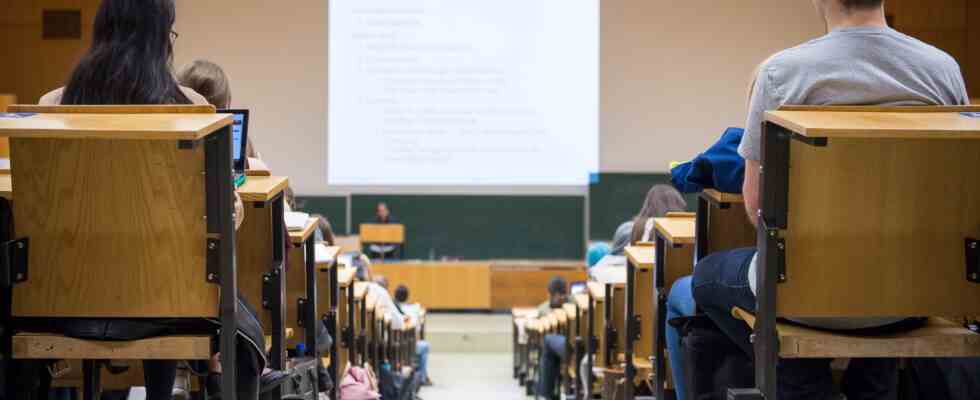Status: 23.06.2022 2:05 p.m
More money for more students: The monthly BAföG rates will be increased, and various allowances will also be raised. However, this does not go far enough for student associations: the increase will be “eaten up by inflation”.
The Bundestag has decided to increase the BAföG rates and expand the group of beneficiaries. The monthly requirement rates increase by 5.75 percent, and the amounts for housing costs and childcare are also increased. Student representatives and the Paritätische Wohlfahrtsverband criticized the measures as insufficient.
The so-called basic requirement rate of BAföG will increase to 452 euros per month for the coming winter semester. The housing allowance for students who do not live at home will increase by 11 percent from 325 euros to 360 euros. The maximum subsidy rate including housing allowance increases from 861 euros to 934 euros – an increase of more than eight percent.
The ministry also pointed out that all BAföG recipients who live abroad will receive a one-off payment for a heating subsidy of 230 euros. According to the information, around three quarters of those receiving funding live outside their parents’ home. The childcare supplement increases from 150 euros to 160 euros.
New rules cost hundreds of millions
In addition, various allowances will be raised: The amount for the recipients’ own assets, for example, is to rise to EUR 15,000 for those under 30 and to EUR 45,000 for those aged 30 and over. Instead of starting at 2,000 euros as before, the income of married parents should in future only be counted towards the child’s BAföG entitlement from 2,415 euros. Another point of the law aims to make it easier to submit applications via the Internet.
According to calculations by the Federal Ministry of Education, the new rules will cost the state a high three-digit million sum every year from 2023. “The previous funding has excluded too many,” said Federal Education Minister Bettina Stark-Watzinger in the Bundestag. The new regulation should renew the “promise of advancement” of the BAföG.
Increase “virtually eaten up by inflation”
However, the resolutions are not enough for the Deutsches Studentenwerk (DSW). The increase of 5.75 percent will “actually be eaten up by inflation,” criticized DSW Secretary General Matthias Anbuhl. The Free Association of Student Unions (FZS) and the DGB youth also expressed dissatisfaction.
The latest BAföG reform is “unfortunately again just a drop in the ocean,” explained the federal youth secretary of the DGB youth, Kristof Becker. “In view of the currently dramatic rate of inflation, you really don’t have to be a math genius to see that the increase is not enough either way.” What is needed is “a BAföG that finally does justice to the reality of student life again and remains so,” said Lone Grotheer from the FZS.
The Paritätische Wohlfahrtsverband pointed out that the poverty rate among students is twice as high as the average for the population. “Young people at the university must be able to concentrate on their studies. Constant existential fears do not make good academics,” said General Manager Ulrich Schneider. According to calculations by the Paritätische Forschungsstelle, almost every second student receiving BAföG is below the general poverty threshold, the association explained. “Accordingly, significantly higher increases than those currently planned are necessary in order to avoid student poverty.”

